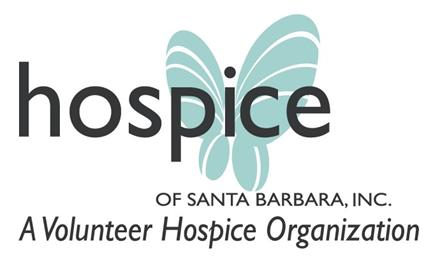Hospice of Santa Barbara provides a wide range of services not just for individuals facing terminal and chronic illness, but also for their families. Many of the programs at the organization focus on the needs of children as they struggle with the impending or recent passing of a loved one. About 20 percent of children experience the death of a loved one before they turn 18, and one in 20 children must face the loss of one or both parents before they reach adulthood. Hospice of Santa Barbara endeavors to provide individuals in these situations with free support through the following programs. This support helps individuals cope with grief to avoid or mitigate depression, anxiety, and post-traumatic stress disorder (PTSD).
The I Have a Friend Mentor Program
When children lose a loved one, it can feel like their lives will never be the same again. Their grief may seem insurmountable. To combat this impression, the I Have a Friend mentor program pairs children and adolescents in this situation with a trained adult volunteer who experienced a similar loss at a young age. This volunteer serves as a companion throughout the grief process and provides a truly sympathetic point of view. The relationship that is built through this program often becomes indispensable as the child continues to face hurdles for several years.
Children who experience loss can feel paralyzed and overwhelmed. Many children in this situation may act out and teens may engage in risky behaviors, such as self-medication or self-mutilation. The I Have a Friend program provides them with an alternative and shows them that they can overcome their grief and pain and lead fulfilling, happy lives, just as the adult volunteers have. These volunteers understand the importance of open communication and work to help program participants become more resilient.
The Youth Bereavement Outreach Program
Hospice of Santa Barbara maintains an active presence on local school campuses at all levels, from elementary school to college. Volunteers visit these campuses to organize weekly support groups for students who have experienced traumatic or complex situations and require a safe place in which to discuss their thoughts and feelings. On-campus services aim to create supportive atmospheres that encourage self-reflection and teach critical coping skills. These coping skills can help adolescents avoid drugs and alcohol, as well as other forms of self-medication.
In addition to working directly with students, the hospice volunteers provide training to faculty and staff members about how to interact with students who are dealing with trauma and how to handle student questions about death, especially violent deaths and suicide. All 65 schools in the Hospice of Santa Barbara network can call on the organization around the clock to respond to a traumatic situation quickly and effectively.
Counseling and Support Services at the Hospice
Many families rely on the hospice for its counseling and support services. On a regular basis, the hospice offers individual, group, and family counseling free of charge. These counseling sessions deal with a variety of issues surrounding death and dying and emphasize the various aspects of emotional, psychological, and spiritual health that are critical for individuals in these situations. For those who cannot come to the center, the hospice runs counseling sessions at several other safe locations throughout the community. Research has shown that participation in counseling sessions early in the grief process can significantly reduce the risk of unresolved grief manifesting years down the road. In addition, researchers have found that counselors specialized in matters relating to death and dying are more effective at helping individuals who have experienced a traumatic loss than general mental health practitioners.
The Parenting After Loss Program
Another important program for families at Hospice of Santa Barbara is Parenting After Loss. This program runs for eight weeks and acts as a support network for parents and guardians, as well as their children, after the loss of a parent or sibling. The education and support received in this program is designed specifically around the emotional and practical repercussions of death within a family unit. By participating in the program, families gain the tools they need to communicate more effectively with each other and ultimately grow stronger as a unit after experiencing a loss.
Anticipatory Grief Services
Both individuals facing death and their loved ones deal with anticipatory grief as the unavoidable draws near. Hospice of Santa Barbara helps loved ones and people with terminal illnesses confront and deal with this grief in constructive ways so that they can enjoy their final days together with minimal stress and anxiety. Facing this grief directly can improve communication between loved ones and lay the foundation for saying what needs to be said and achieving a sense of closure, which can ease the grieving process after the loss occurs.
Individuals can learn more about these services, including how to access them, as well as other forms of support available at Hospice of Santa Barbara online at HospiceOfSantaBarbara.org.
